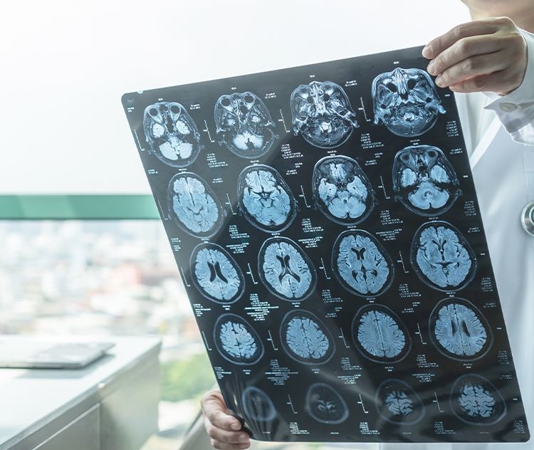Traumatic brain injuries are a major cause of death and disability in the United States. Opioid addiction, a growing public health crisis, can complicate the clinical management of TBI due to chronic drug effects. Patients with preadmission opioid abuse and/or dependence (POAD) are at higher risk of morbidity and mortality during hospitalization, and little is known about the management of TBI with opioid addiction.
To investigate the impact of POUD on TBI patients, researchers analyzed data from a national database on 5,725 adult TBI patients with POAD and 450,118 adult TBI patients without POAD. They compared the incidence of respiratory, cardiovascular, and neurologic complications between the two groups. They found that:
- POAD TBI patients had a significantly higher likelihood of experiencing respiratory and neurologic complications compared to non-POAD TBI patients.
- POAD TBI patients were at significantly higher risk of delirium, malnutrition, respiratory failure, renal failure, and sepsis than non-POAD TBI patients.
- Non-opioid drug abuse, alcohol abuse, tobacco dependence, depression, anxiety, and liver disease were higher in the POAD group, while coronary artery disease, diabetes, and hyperlipidemia were more common in the non-POAD group.
- POAD patients had a significantly lower risk of in-hospital mortality compared to non-POAD patients.
These findings indicate that POAD is a risk factor for in-hospital complications in TBI patients. While the reasons for the lower risk of in-hospital mortality among POAD patients are not entirely clear, the study also suggests that opioid use may create short-term neuroprotective conditions by altering the neuroinflammatory process during opioid use. The study also highlighted the importance of nutritional care in managing TBI patients with OUD, as malnourishment placed patients at higher risk for infection. While shorter hospital stays and lower mortality were found in POAD groups, further research should be directed toward chronic consequences of POAD in people with TBI and its associated in-hospital comorbidities.
Lai H, Mubashir T, Shiwalkar N, et al. Association of pre-admission opioid abuse and/or dependence on major complications in traumatic brain injury (TBI) patients. Journal of Clinical Anesthesia. (August 2022).

